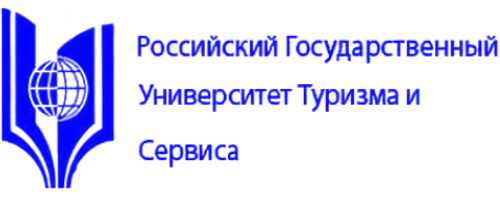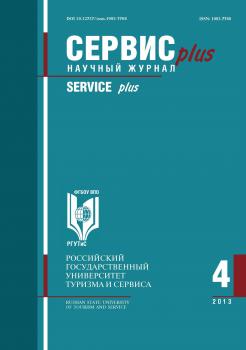Moscow, Russian Federation
The article deals with the application of modern methodology and technology risk management — compliance in the field of tourism and service, and the focus is not only on its advice functions, but also on the control functions when effective supervision is exercised over the implementation of laws and regulatory policies and procedures for an organization. It is shown that compliance mechanisms have an integrated methodology and consist of of three interrelated components: "identification" (risk identification), "prevention" (risk control) and "response" (effective purposeful actions in specific situations). Provided are basic definitions in compliance, characterized its standard policies, principles and interactions between the basic functional blocks of the system of compliance. It is shown that compliance is a complex of real-world measures to protect the business and its shareholders, on the one hand, from the external impact of corruption (corruption of the environment), and on the other —from abuse (internal corruption) and inefficient management of the organization on the part of its management. Particular attention is paid to compliance audit, whose main purpose is to prevent violations of the law in the accumulation and use of funds of organizations of any form of properly and corruption in relation to civil servants and officials of any organization. The advantages of the introduction of compliance in tourism and recreation and service areas are shown in three hierarchically related levels: increasing the value of the company and its investment attractiveness; curbing abuse and organizing synergistic positive effects of the company; monitoring, risk prevention for the development of the company. The article outlines the main provisions of the agreement on cooperation between the National Association for Comliance and RSUTS, in particular concerning training, retraining and advanced training in the field of compliance management in tourism and service.
compliance, tourism and service management, methodology, technology, corruption, risks, threats, security, training
Введение
Необоснованная и малоуправляемая погоня организаций туристско-рекреационного комплекса и сферы сервиса за сверхприбылями, как показывают события последнего времени, постоянно приводит к появлению «мыльных пузырей», которые рано или поздно лопаются, приводя к значительным финансовым потерям для клиентов и имиджевым — для обслуживающих их структур.
Чтобы избежать повторения подобных негативных ситуаций, следует обратиться к современным методологиям и технологиям управления рисками, имея в виду не только и не столько консультативные функции, но и в большей степени — контрольные, когда не только устанавливаются стандарты работы, но и осуществляется эффективный надзор за надлежащим исполнением политик и процедур функционирования организаций [1—3].
1. Ambrozhevich O.V. Komppaens. S nim ili bez nego//Vestnik NAUFOR. 2011. № 9. S. 54-60.
2. Vapnyarskaya O.I., Platonova N.A. Formirovanie kontseptual´nykh i metodologicheskikh osnov servisnogo audita. Servis v Rossii i za rubezhom (elektronnyy zhurnal). 2013. № 7 (45). http://old.rguts.ru/electronic_ journal/number50/contentshttp://old.rguts.ru/electronicjournal (data obrashcheniya: 21.12.2014).
3. Danilin O., Pustovalova E. Komplaens-funktsiya v sovremennoy organizatsii: sozdanie, strukturirovanie i otsenka. Vnutrenniy kontrol´ v kreditnoy organizatsii. 2010. № 3 (07). S. 66-84.
4. Efimov V.V., Tumanova A.N. Vnutrenniy audit kachestva i samootsenka organizatsii: Uchebnoe posobie. Ul´yanovsk: UlGTU 2007. 123 s.
5. Pankratova L.A. Formirovanie sistemy vnutrennego audita v obespechenii razvitiya proizvodstvennykh struktur. Avtoref.... kand. ekon. nauk. Orel: Orlovskiy gosudarstvennyy institut ekonomiki i torgovli, 2013.
6. Platonova N.A., Fedulin ΑΛ. i dr. Kompleksnoe obsluzhivanie: teoriya i praktika. Monografiya / pod obshch. red. Platonovoy N.A. M.: Sobranie, 2011.
7. Sayt Natsional´noy assotsiatsii komplaens. Elektronnyy resurs: http://compliance.su/stati/ (data obrashcheniya: 18.08.2014).
8. Soloncheva SV. Metodicheskie osnovy razrabotki vnutrennikh standartov auditorskoy deyatel´nosti. Avtoref.... kand. ekon. nauk. M.: Vseros. zaoch. fin.-ekon. in-t, 2009.
9. Fedulin A.A., Minaev V.A. Raspredelenie kontrol´nykh tsifr priema studentov v kontekste effektivnosti deyatel´nosti vuzov. Vysshee obrazovanie segodnya. 2014. № 2. S. 25-28.
10. Fedulin A.A., Bagdasaryan V.E. Servis i natsional´naya bezopasnost´. Servis v Rossii i za rubezhom (elektronnyy zhurnal). 2013. № 2 (40). S. 5-22. http://old.rguts.rU/electronicJournal/number50/contentshttp://old. rguts.ru/electronicJournal (data obrashcheniya: 21.12.2014).
11. Fedulin A.A., Bagdasaryan V.E. Mify o servise. Servis plus. 2010. № 1. S. 3-13.
12. Fedulin A.A. Prioritetnye zadachi formirovaniya nauki o servise. Vestnik Assotsiatsii vuzov turizma i servisa. 2009. № 4. S. 3-4.
13. Fedulin A.A. Investitsii v chelovecheskiy kapital - put´ razvitiya professional´nogo obrazovaniya v sfere servisa i turizma. Sovremennye problemy servisa i turizma. 2008. № 4. S. 67.
14. Khrustalev A.A. Vnutrenniy audit na promyshlennom predpriyatii: sushchnost´ ponyatiya i organizatsiya sluzhb. Audit i finansovyy analiz. 2003. № 4. Elektronnyy resurs, http://www.auditfin.com/ fin/2003/4/fin_2003_41_rus_05_01_Hrustalev/fin_2003_41_rus_05_01_Hrustalev.asp (data obrashcheniya: 18.08.2014).
15. Boon K., McKinnon J., Ross Ph. (2008) Audit Service Quality in Compulsory Audit Tendering: Preparer Perceptions and Satisfaction, Accounting Research Journal, \bl. 21. Iss: 2, pp. 93-122.
16. Chase R. (1992) A Service Guarantee, Managing Service Quality, \bl. 2 Iss: 1, pp. 39-43.

















